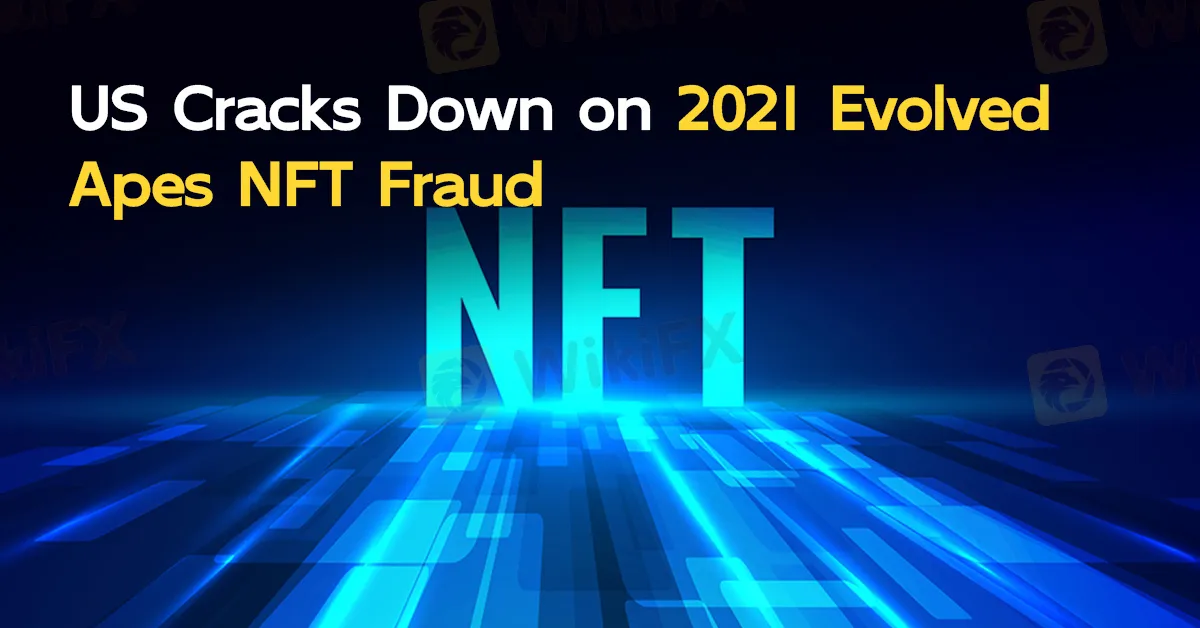简体中文
繁體中文
English
Pусский
日本語
ภาษาไทย
Tiếng Việt
Bahasa Indonesia
Español
हिन्दी
Filippiiniläinen
Français
Deutsch
Português
Türkçe
한국어
العربية
US Cracks Down on 2021 Evolved Apes NFT Fraud
Abstract:The United States Attorney's Office for the Southern District of New York announced today that three individuals have been charged in connection with a non-fungible token (NFT) rugpull from 2021, known as Evolved Apes.

The United States Attorney's Office for the Southern District of New York announced today that three individuals have been charged in connection with a non-fungible token (NFT) rugpull from 2021, known as Evolved Apes.
According to a release from the SDNY's office, Mohamed-Amin Atcha, Mohamed Rilaz Waleedh, and Daood Hassan face charges of wire fraud and money laundering.
Evolved Apes was a collection of 10,000 unique NFTs, promising a video game that never materialized. The anonymous developer, Evil Ape, vanished a week after the project‘s launch, siphoning 798 Ether (equivalent to $3 million today, or $2.7 million at the time) from the project’s funds.
U.S. Attorney Damian Williams indicated that the defendants orchestrated a scheme to inflate the price of digital artwork through false promises about developing a video game. They allegedly took investor funds, never developed the game, and pocketed the proceeds. He emphasized that despite the novelty of digital art, making false promises for money remains illegal.

In the cryptocurrency world, this type of scheme is referred to as a rug pull. It involves developers raising funds from investors through the sale of tokens or NFTs, then abruptly shutting down the project and disappearing with the money.
Digital assets, including cryptocurrencies and NFTs, are particularly susceptible to investment frauds and scams due to their decentralized nature, lack of regulatory oversight, and the anonymity they offer. These factors create an environment where fraudulent actors can operate with relative impunity, exploiting the novelty and complexity of digital assets to mislead investors. Additionally, the rapid growth and high volatility of the market attract both inexperienced investors and malicious entities, making it easier for scams like rug pulls to thrive. The technological sophistication required to understand and navigate this space also leaves many investors vulnerable to deceptive schemes.
According to De.Fi's Rekt database, more than $14.5 billion has been lost to rug pulls since 2011.
The largest rug pull to date involved the South African digital assets investment fund, Africrypt, which absconded with 69,000 bitcoins in 2021, worth nearly $4.8 billion at the time.

Disclaimer:
The views in this article only represent the author's personal views, and do not constitute investment advice on this platform. This platform does not guarantee the accuracy, completeness and timeliness of the information in the article, and will not be liable for any loss caused by the use of or reliance on the information in the article.
Read more

Using Any of These Illegal Forex Trading Apps? Stop Before It Turns into a Crisis
The Reserve Bank of India (RBI) has listed out some illegal forex apps India. Read this article to know some of those apps.

5 Reasons to Stay Away from Core Prime Markets
The Forex market is a very unpredictable, complex, and risky place. There are many brokers that appear genuine but can steal your hard-earned money. So, staying alert is the only way to survive in this dynamic environment. Therefore, in this article, we are sharing 5 warning signs about Core Prime Markets.

Think Before You Trade! Unlicensed Brokers List Inside
The French regulator AMF has issued a warning against five unlicensed brokers. Investors are encouraged to verify the list to protect themselves from fraud.

Revolut Expands into Latin America with Strategic Argentina Acquisition
Revolut acquires Banco Cetelem from BNP Paribas, marking its Argentina entry. This Revolut acquisition in Argentina signals a major Latin America expansion move.
WikiFX Broker
Latest News
PU Prime and AFA Announce Partnership at Madrid Event
ASIC Warns of Escalating Share Sale Scams Amid $119M Scam Losses
Top 5 Forex Brokers Offering Islamic Accounts in 2025
A Guide to RBI Forex Rules in India
“Wins with $19,916 weekly profit on Exnova”? There is something you should know.
Oil Prices Slide After Cease-Fire
Clones of ThinkMarkets Are Lurking | Don’t Fall for the Fake
How Macro Events Drive Energy Price Fluctuations and Their Linked Impact on the Global Forex Market
IQ Option: Regulation, Warnings, and What Traders Need to Know
TSMC to Inject $10 Billion into Overseas Subsidiaries
Currency Calculator


